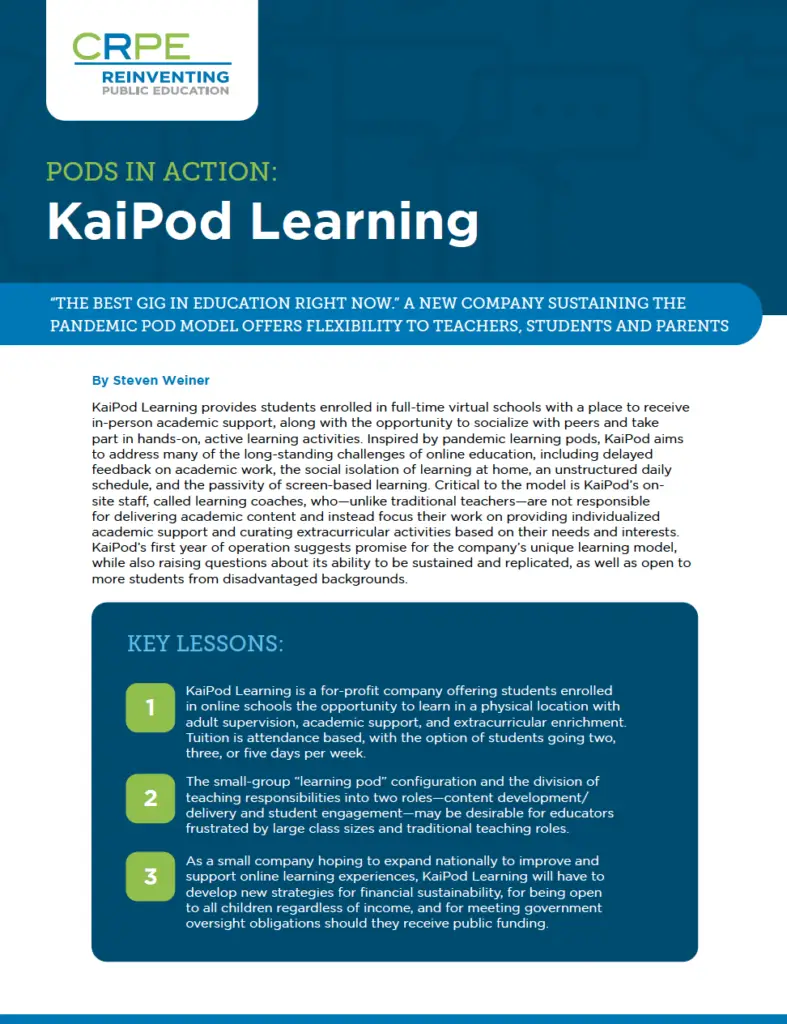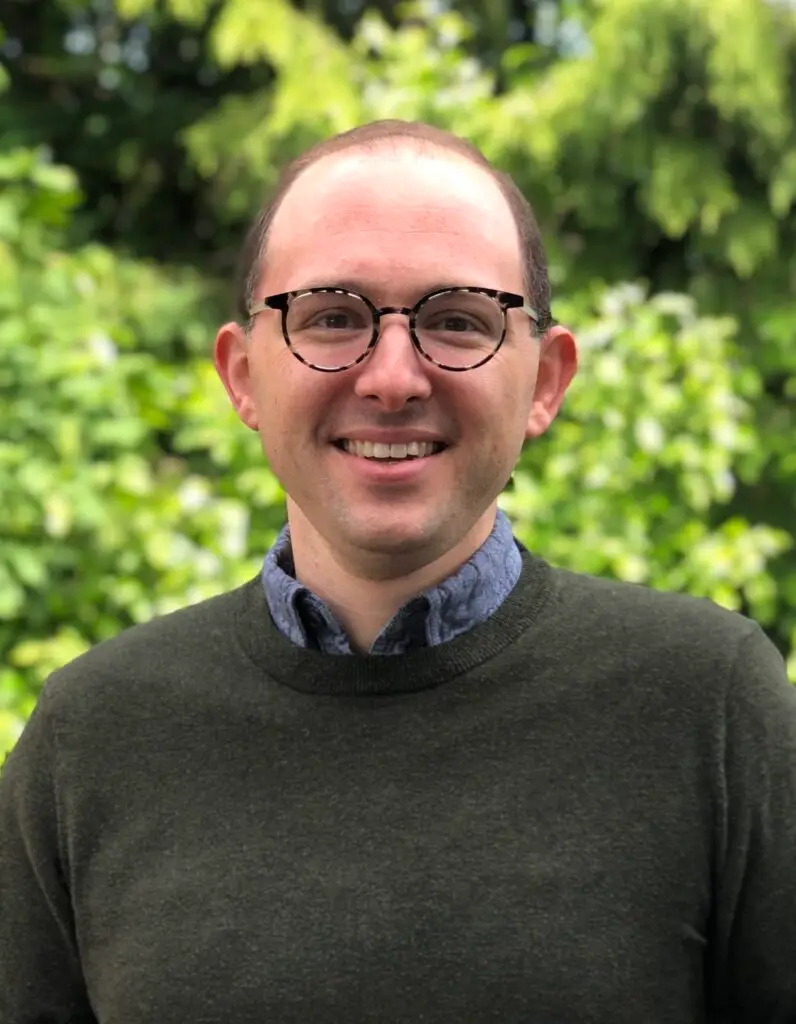Case Study | “The best gig in education right now.” A new company sustaining the pandemic pod model offers flexibility to teachers, students and parents
KaiPod Learning provides students enrolled in full-time virtual schools with a place to receive in-person academic support, along with the opportunity to socialize with peers and take part in hands-on, active learning activities. Inspired by pandemic learning pods, KaiPod aims to address many of the long-standing challenges of online education, including delayed feedback on academic work, the social isolation of learning at home, an unstructured daily schedule, and the passivity of screen-based learning. Critical to the model is KaiPod’s onsite staff, called learning coaches, who—unlike traditional teachers—are not responsible for delivering academic content and instead focus on providing individualized academic support and curating extracurricular activities based on students’ needs and interests. KaiPod’s first year of operation suggests promise for the company’s unique learning model, while also raising questions about its ability to be sustained and replicated, as well as open to more students from disadvantaged backgrounds.
Key Lessons
- KaiPod Learning is a for-profit company offering students enrolled in online schools the opportunity to learn in a physical location with adult supervision, academic support, and extracurricular enrichment. Tuition is attendance based, with the option of students going two, three, or five days per week.
-
The small-group “learning pod” configuration and the division of teaching responsibilities into two roles—content development/ delivery and student engagement—may be desirable for educators frustrated by large class sizes and traditional teaching roles.
- As a small company hoping to expand nationally to improve and support online learning experiences, KaiPod Learning will have to develop new strategies for financial sustainability, for being open to all children regardless of income, and for meeting government oversight obligations should they receive public funding.




